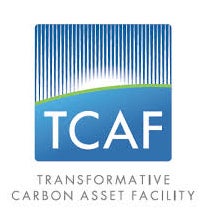Programs
Overview
For countries to meet their Nationally Determined Contributions (NDCs) under the Paris Agreement, as well as other mitigation goals, it will be necessary to move beyond project-by-project approaches to reducing emissions. The TCAF was designed to support this move in our partner countries. The TCAF engagement helps countries formulate and implement an Article 6 (Paris Agreement) strategy and framework, to transform their economies and integrate climate mitigation into complete sectors or jurisdictions.
TCAF supports three types of programs through results-based payments for verified emissions reductions:
Policy-Based Programs: These include policies that bring energy sector reforms; fiscal policy changes; and regulatory measures to promote sustainable mobility.
Sector-Based Programs: These programs include establishment of a Minimum Energy Performance Standard for the industrial sector; sectoral targets for the share of renewable energy in the grid mix or alternative fuels.
Jurisdictional Programs: These programs include sustainable (urban) program targeting low-carbon city planning; and multi-sectoral approaches to reduce the carbon footprint of buildings, transport, water, and/or energy sectors within a jurisdiction.
Programs

Program Design
TCAF offers support both on international and domestic levels.
Domestically: Supporting mitigation ambitions in developing countries
Mobilizing international climate finance, TCAF supports middle-income countries in scaling up their climate commitments and accelerating meaningful socio-economic growth. Working with national policy makers, TCAF helps shape domestic environmental, energy, and climate change policy to reach meaningful scale and create a lasting, transformative social impact. For example:
- Helping developing countries implement market-based carbon pricing and sector-wide mitigation measures
- Leveraging public finance to create favorable conditions for private sector investment in low-carbon technologies, provide blueprints for efficient and low-cost mitigation, and achieve lasting transformational impact
Internationally: Helping shape carbon markets
TCAF’s efforts inform the international process established in Paris to develop standards and agreements for future carbon crediting instruments and transfer of mitigation assets. TCAF tests various methods to transparently transfer “mitigation outcomes” between parties and to provide stringent accounting and transparency, ensuring the environmental integrity of the assets.

